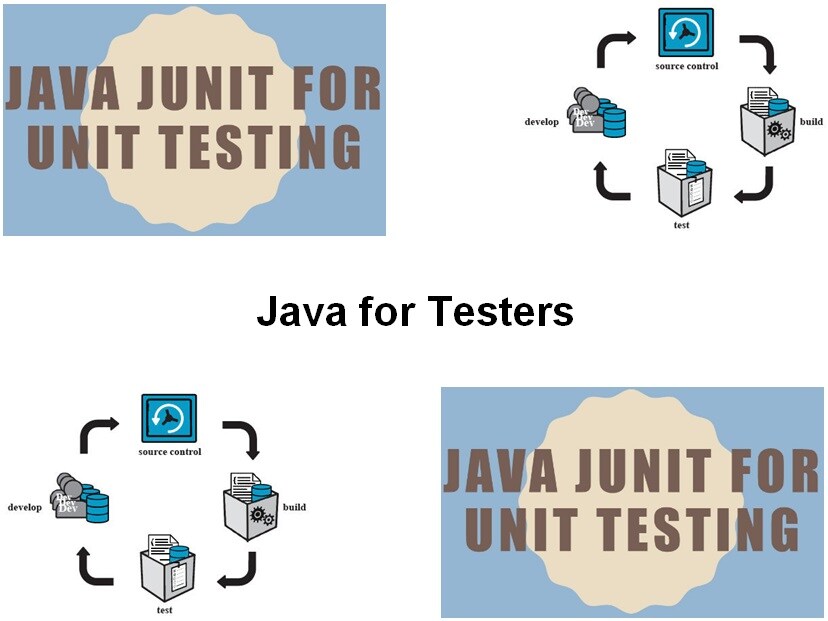-
Learning by doing
-
Trainers with practical experience
-
Classroom training
-
Detailed course material
-
Clear content description
-
Tailormade content possible
-
Training that proceeds
-
Small groups
In the course Java for Testers you will learn the basic syntax of Java and how to use it when writing JUnit test scripts and Cucumber scenarios.
Attention is paid to the various data types in Java and the flow control constructions. Also the use of classes and objects with methods, parameter passing and private and public data is discussed. And exception handling in Java and the Java collection framework are treated as well.
The program of the course Java for Testers also discusses to the design of JUnit tests, the structure of JUnit tests, the annotations and assert statements used, the execution of JUnit tests in an Eclipse environment as well as the reporting on the outcome of the tests.
Finally the Cucumber Framework will be discussed and the mini language Gherkin and the integration with JUnit. The demos and exercises in the course Java for Testers are done in a JUnit environment and are therefore directly applicable when writing test scripts.
Attention is also paid to the automation of tests in the context of setting up continuous integration. The projects are built in the dependency management tool Maven. The course Java for Testers provides a good basis for participating in the course Web Testing with Selenium .
The course Java for Testers is intended for experienced testers that want to learn how to use Java, JUnit and Cucumber for writing test scripts.
Experience with testing is required to join this course. Programming experience is beneficial for the understanding of the concepts but is not required.
The course has a hands-on nature. The theory is treated on the basis of presentation slides and is interspersed with practical exercises. The course material is in English. The course times are from 9.30 up and to 16.30.
Participants receive an official certificate Java for Testers after successful completion of the course.

Module 1 : Basic Concepts |
Module 2 : Language Syntax |
Module 3 : Classes and Objects |
| Java Overview Java Editions Java Platform Java Community Process Java Language Compiling Java Programs Running Java Programs Compiler and Interpreter Application Structure Packages Jar files Classpath Java Libraries Maven |
Java Comments Variables Types of Variables Primitive Data Types Block Statements Operator Precedence Flow Control if else Statements switch Statement for and while Loop break and continue Arrays Enhanced for Loop Strings |
Class Definition Encapsulation Access Modifiers Constructors Creating Objects Fields and Methods Using Objects static Modifier this Keyword Parameter Passing Method Overloading Object References final Modifier Object Destruction |
Module 4 : Exception Handling |
Module 5 : Collections |
Module 6 : JUnit and Cucumber |
| Error Conditions Exceptions in Java Exception Handling Syntax Exception Hierarchy Multiple Catch Clauses finally Clause Exception Information Predefined Exceptions Common Exceptions Throwing Exceptions User Defined Exceptions Chained Exceptions Rethrowing Exceptions Stack Traces |
Collection Framework Framework Branches Implementation Classes Legacy Collections Collection Interface Iterator Interface Concrete Collections List Interface ArrayList Class LinkedList Class Map Interface Optional Methods Views Using Generics |
What is JUnit? Annotations Test Cases Assert Statements Fixtures Test Suites Testing for Exceptions What is Cucumber? User Stories Scenario's Feature Files Gherkin Keywords Given When Test Automation |
